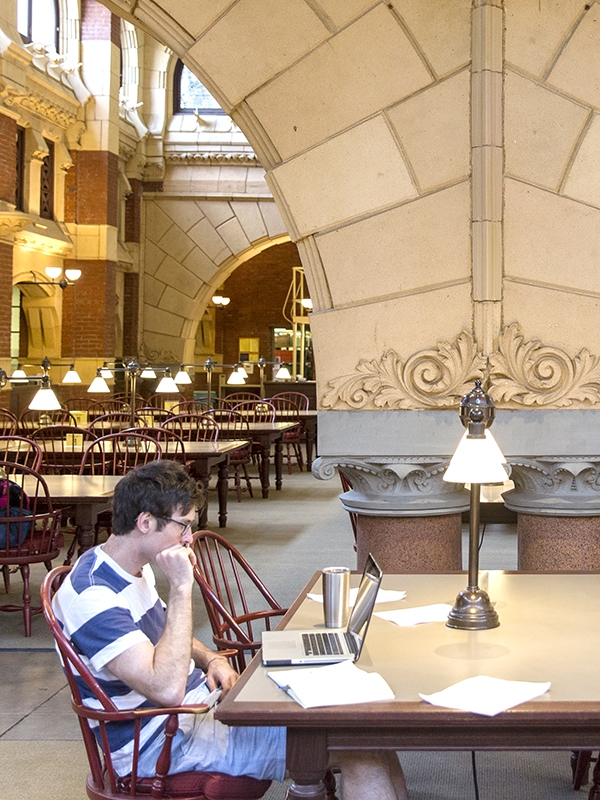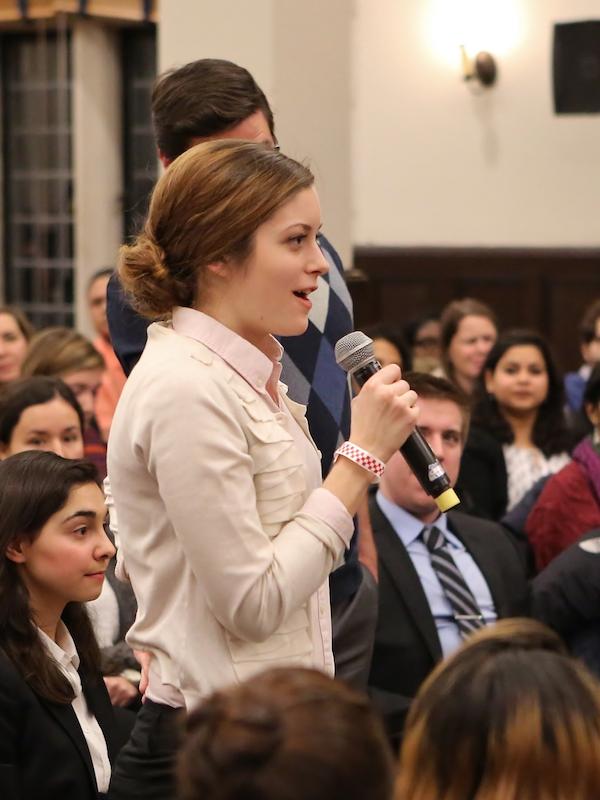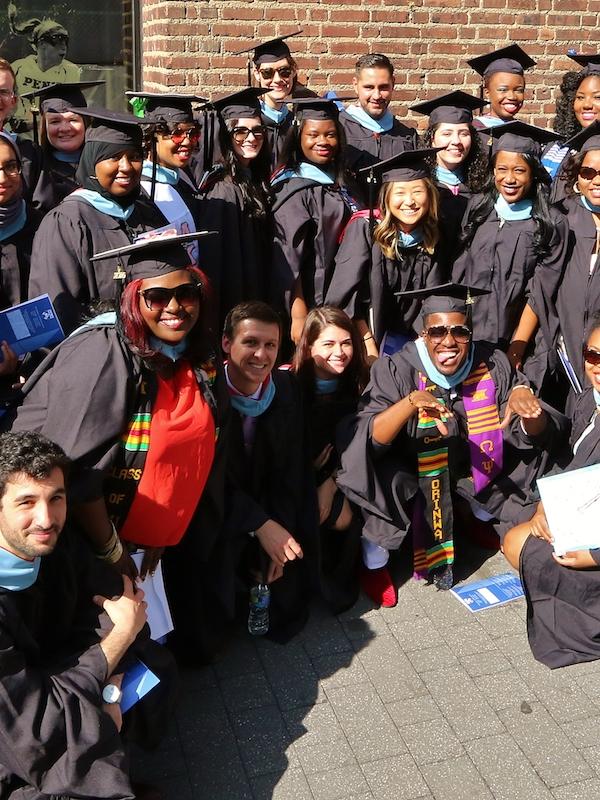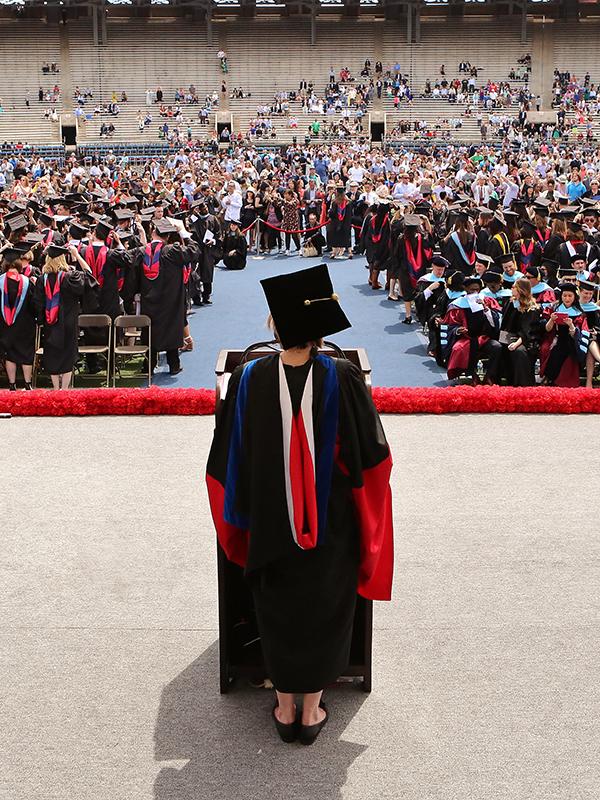Bringing the Penn Literacy Network to China and Western Canada
Shuai (Michelle) Shen, GED’08, is an educational consultant based in Vancouver, Canada. We sat down with her to discuss how her work for the Penn Literacy Network (PLN) at Penn GSE is bringing practical, evidence-based professional development to teachers in China and beyond.
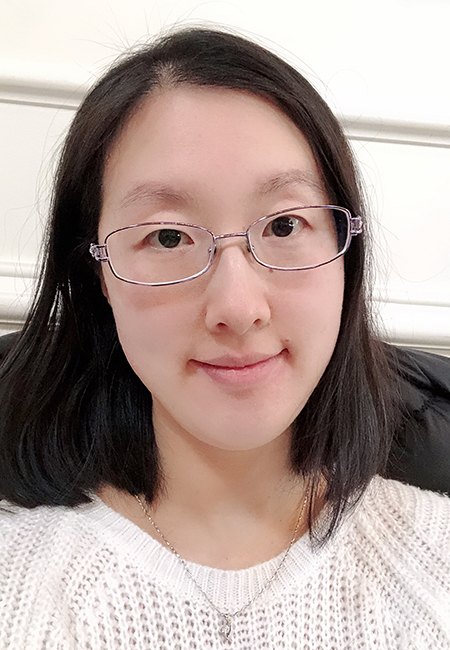
What drew you to PLN and your role as liaison and advisor for its Asia-Pacific Program?
I first learned of PLN when I received an email inviting me to the Summer Leadership Workshop in 2015. I visited the PLN website and read all about their work helping preK–12 educators improve their methods of teaching literacy. I work with a lot of secondary students as an educational consultant, so I could imagine how PLN’s approach could have a meaningful impact on students. I decided to attend the workshop on campus that July, and when I did, I felt the magic of PLN’s work. It’s very interactive. PLN Executive Director Bonnie Botel-Sheppard, GED’76, GRD’81, and her staff create a supportive, inclusive environment. I felt the power of what they were doing, and I wanted to be a part of it. I asked Bonnie if she had thought about working with educators in China, and we began collaborating.
What is special about PLN’s approach?
It is a cross-grade, cross-curriculum, research-based approach to the teaching of literacy. PLN works with teachers, administrators, and parents at all grade levels to help them use reading, writing, and conversation to improve learning in multiple subject areas, including language, math, social studies, science, and the arts. Educators learn how to engage students in reading, writing, problem solving, and critical thinking to help students process and reflect on their learning in all subject areas. That structure is very innovative and is often quite new to Chinese educators who have been trained based on their grade level or subject area.
"PLN Executive Director Bonnie Botel-Sheppard, GED’76, GRD’81, and her staff create a supportive, inclusive environment. I felt the power of what they were doing, and I wanted to be a part of it."
PLN has brought its approach to multiple states and several countries. How did you go about bringing it to China?
I spoke with my friends and organizations in China and identified Xingzhi Education as a potential collaborator. That led to PLN and Xingzhi establishing a partnership in 2016. Xingzhi is based in Shanghai and has partner schools across China and Western Canada, so its reach is broad. I work with Bonnie and PLN Associate Director Lara Paparo, GED’06, to respond to the opportunities that arise. So far we have held four courses on campus at Penn for educators that Xingzhi sends to us. Most of the educators are from mainland China, and a few teach English to Chinese students in Vancouver and the Philippines. PLN has also gone to China to conduct trainings. We were invited to train more than fifty teachers at the Minhang School District, a public school district in Shanghai, and over twenty-five teachers at Shanghai Pinghe School, the top independent school in Shanghai. We have a translator at all of the sessions and have created bilingual versions of PLN’s main textbooks in English and Chinese.
How have the participants responded?
I get a lot of positive feedback from the teachers. Some teachers focus on the supportive classroom—they feel like everybody gets acknowledged and supported in the PLN courses, and this is the kind of environment they want to create for their students. Other teachers focus on the interactive aspect—they are used to a very lecture-based approach, but PLN’s classes involve a lot of thinking, reflection, and application of knowledge, and again, the teachers want to bring this to their students. Overall, teachers like the practical nature of the training. Because PLN’s instructors use the strategies they are teaching during class, the teachers can understand how to apply them. More experienced teachers may have been using some of the strategies already, but in the PLN courses they learn the meaning behind the strategies. They learn how to reflect on their past teaching and guide their future teaching.
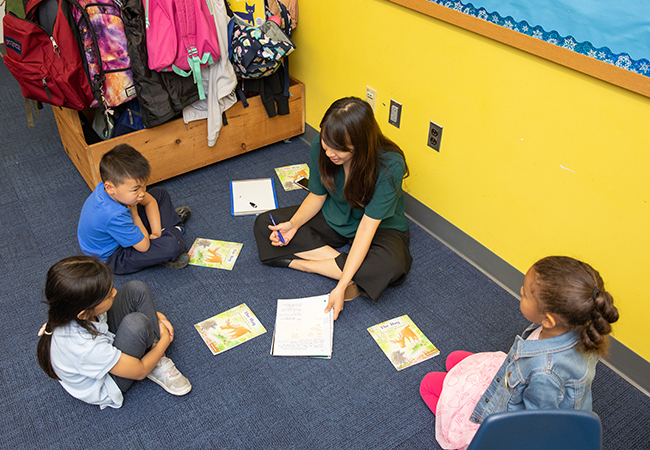
How did your experience at Penn GSE lead to your work as an educational consultant?
At Penn GSE I studied psychological services, with a focus on secondary counseling. I did practicums at two high schools in Philadelphia—South Philadelphia High School and Paul Robeson High School. Penn GSE provided me with solid knowledge, valuable opportunities to do constant reflections, and hands-on experience that helped me explore and figure out what I wanted to do in my life. I really enjoyed working with high school students, understanding their needs and concerns, helping them gain valuable communication and social skills, and guiding them step by step to help them understand why they need a high school education or how to get a college education. Seeing how they grow inspires me to continue pursuing this as my career.
What is next for PLN’s Asia-Pacific Program?
We’re opening more courses to teachers from the Asia-Pacific region. For example, we will offer a course entitled Reading, Writing, and Talking with a Focus on Science and Math this July on campus for teachers and administrators from China and Canada, and in August at Shanghai Pinghe School for thirty math and science teachers. We have also incorporated a leadership component for administrators during the past few courses and plan to work with more educational leaders and administrators in the near future. We are preparing another new program to be offered in China for teachers and administrators in early-childhood and kindergarten education. In addition, we’re expanding our work to new audiences. I’ll be inviting families from China to join us on campus for a new family literacy program to help parents work with their elementary-age children on reading and writing.
Visit https://pln.gse.upenn.edu to learn more about GSE’s Penn Literacy Network.

